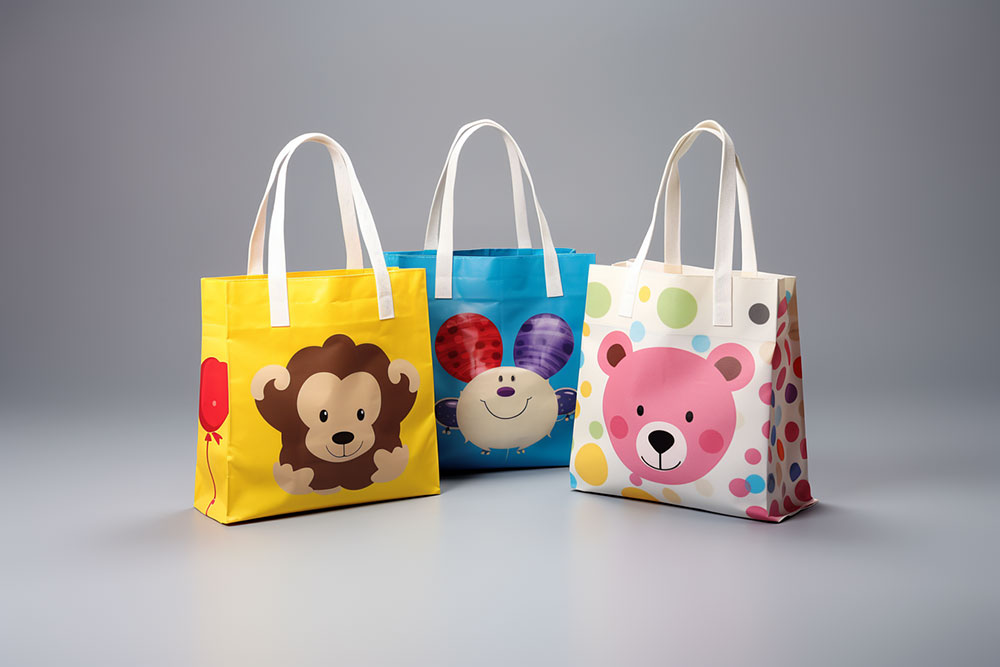
Each year, our planet faces a deluge of plastic waste at staggering levels. This waste not only chokes our water bodies but also poses severe threats to marine creatures. Amidst the myriad of proposed solutions, non-woven bags shine due to their straightforwardness and efficiency. In this piece, we'll delve into the pivotal role these bags play in reducing plastic pollution and how backing non-woven bag manufacturers can usher in meaningful change.
Understanding Non-Woven Bags
Unlike traditional woven bags that are made by intertwining threads, non-woven bags emerge from sheets of fabric bonded together. The processes involved range from thermal and chemical to mechanical methods. This ensures that the bags are not only sturdy but also environment-friendly. Non-woven bag manufacturers have refined these methods over the years, ensuring that consumers get a product that’s both durable and sustainable.
Five Reasons Non-Woven Bags Are Our Best Bet Against Plastic Pollution
- Durability That Outshines Plastic: One of the main reasons plastic bags became popular is their strength. However, non-woven bags match, if not surpass, this durability. A single non-woven bag can endure the weight of groceries, books, and more, making it a long-lasting alternative to flimsy plastic carriers.
- Eco-Friendly From Start to Finish: Manufacturers of non-woven bags place the environment at the forefront of their production methods. They frequently employ eco-friendly raw materials, which means the bag starts benefiting the environment even before it's in your hands. Additionally, these manufacturing methods typically consume less energy and emit fewer pollutants than the production of traditional plastic bags.
- Biodegradability Matters: A significant concern with plastic bags is their stubbornness to decompose. They can remain in our environment for hundreds of years, suffocating marine life and littering landscapes. In contrast, many non-woven bags break down faster. Even if they end up discarded incorrectly, they don't pose as lasting a threat as plastic bags do.
- Beyond Just Grocery Shopping: Think about the numerous times businesses hand out promotional material in plastic bags or the countless fashion outlets that use plastic carriers. Non-woven bags offer a versatile alternative. Their sleek finish and durability make them perfect for a range of uses, from corporate events to daily fashion.
- Economic Gains: Transitioning to non-woven bags isn’t just about the environment. It's also a savvy economic move. With a growing demand for sustainable products, businesses that opt for non-woven bags can enjoy a competitive edge. Moreover, the rise in demand for these bags can create job opportunities and foster innovation in green manufacturing practices.
How Can We Support Non-Woven Bag Manufacturers?
Our purchasing choices drive market trends. By opting for non-woven bags, we signal to businesses our preference for sustainable products. Here's how you can make a difference:
- Consumer Awareness: Educate friends and family about the benefits of non-woven bags. The more people know, the higher the demand, leading to a broader societal shift.
- Business Collaborations: If you're involved in business decision-making or own one, think about adopting non-woven bags as your packaging choice. This shift won't just diminish your environmental impact; it will also elevate your brand's reputation as a green-conscious organization.
- Local Initiatives: Engage with local communities to organize awareness campaigns or drives to distribute non-woven bags, replacing the plastic ones in circulation.
Wrapping Up
Tackling plastic pollution might seem like a mammoth task, but solutions often lie in the simplest of changes. Non-woven bags offer a tangible, effective, and sustainable alternative to plastic carriers. By understanding their significance and supporting non-woven bag manufacturers, we can all contribute to a cleaner, healthier, and more sustainable future for our planet.

























